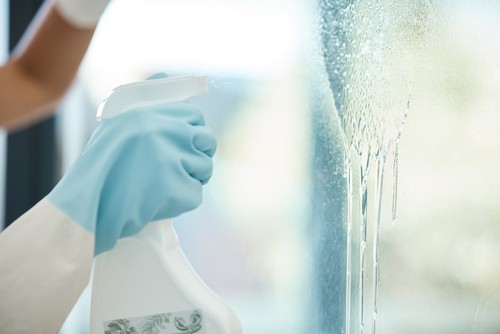
Nutrition and Meal Planning in Part-Time Elderly Care
October 14, 2023
Preparing Your Home for a Newborn: Cleaning Checklist
November 10, 2023Hygiene and Personal Care: Maintaining Senior Well-Being
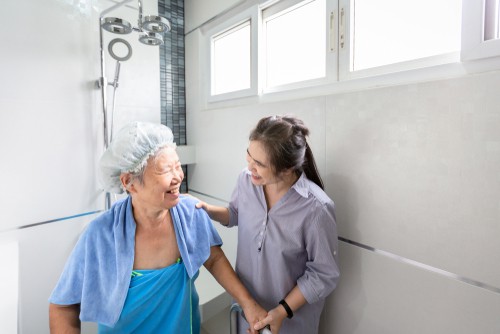
Hygiene and Personal Care Maintaining Senior Well-Being
Hygiene and Personal Care: Maintaining Senior Well-Being. In life’s journey, the golden years should be a time of comfort, contentment, and good health.
Central to this well-being is hygiene and personal care for seniors. Maintaining proper hygiene is not just a matter of cleanliness; it significantly impacts senior health, self-esteem, and overall quality of life.
In this comprehensive guide, we will explore the importance of personal hygiene for seniors, common challenges they face, strategies for maintaining independence, and the supportive role of part-time caregivers in this crucial aspect of senior well-being.
Table of Contents
ToggleThe Importance of Personal Hygiene for Seniors
Personal hygiene encompasses practices that promote cleanliness and well-being. For seniors, these practices are essential for physical and emotional health.
Common Hygiene Challenges Faced by Seniors
Seniors may encounter various hygiene challenges, including:
- Mobility Issues: Reduced mobility can hinder self-care.
- Cognitive Decline: Memory issues may affect hygiene routines.
- Sensory Changes: Impaired vision or hearing can impact self-care awareness.
How Hygiene Contributes to Overall Well-Being
Proper hygiene is not just about cleanliness; it plays a pivotal role in senior well-being by:
- Preventing Infections: Good hygiene reduces the risk of infections.
- Boosting Confidence: Feeling clean and fresh enhances self-esteem.
- Promoting Comfort: Personal comfort and dignity are closely tied to hygiene.
Maintaining Personal Hygiene Independence
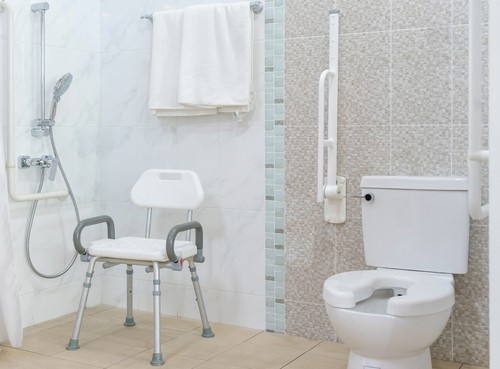
Independence in personal care is a fundamental aspect of senior well-being. It fosters a sense of self-worth and autonomy.
Assistive devices and adaptive techniques empower seniors to maintain independence in personal care. These tools can include shower grab bars, non-slip bath mats, and long-handled brushes.
Strategies for Encouraging Self-Care
Part-time caregivers can encourage self-care by:
- Providing Gentle Reminders: Kind reminders can help seniors establish routines.
- Creating Accessible Spaces: Ensuring bathroom and grooming areas are safe and accessible.
- Simplifying Routines: Streamlining tasks can make self-care more manageable.
Bathing and Showering
Tips for Safe and Comfortable Bathing
For seniors, bathing or showering can become challenging. Here are some tips to ensure safe and comfortable experiences:
- Use Non-Slip Mats: Install non-slip mats in the bathroom to prevent falls.
- Adjust Water Temperature: Ensure water temperature is comfortable and safe.
- Provide Support: Offer assistance when needed but respect privacy.
Adaptations for Seniors with Mobility Issues
Seniors with mobility issues may benefit from:
- Shower Chairs: These provide stability during bathing.
- Handheld Showers: Allow for more control during rinsing.
Select gentle, fragrance-free bathing products to minimize skin irritations. Be mindful of any allergies or sensitivities.
Oral Hygiene

Oral health is integral to overall health, particularly for seniors. Poor dental hygiene can lead to issues like gum disease and tooth loss.
Seniors should have regular dental checkups to address dental issues promptly and maintain oral health. Part-time caregivers can assist with oral care by:
- Gentle Brushing: Use a soft-bristle toothbrush for gentle brushing.
- Regular Flossing: Encourage daily flossing to prevent gum problems.
- Denture Care: Ensure proper cleaning and maintenance of dentures.
Skin Care
Seniors experience age-related skin changes, such as thinning skin, decreased oil production, and reduced elasticity. Good skin care involves keeping the skin clean, moisturized, and protected from irritations and infections.
Seniors should use moisturizers to combat dry skin and apply sunscreen to protect against sun damage.
Hair Care
Healthy hair contributes to a senior’s overall well-being. Part-time caregivers can assist with hair care routines.
Seniors experiencing hair thinning or scalp issues can explore treatments and products designed for their specific needs.
Part-time caregivers can help with hair washing, styling, and maintaining hair hygiene.
Toileting and Incontinence
Incontinence can be emotionally challenging for seniors. Caregivers should approach this topic with empathy and respect.
Maintaining cleanliness and using appropriate incontinence products are crucial for seniors with incontinence. Select incontinence products that offer comfort, absorbency, and leak protection.
Dressing and Grooming
Seniors with limited mobility may benefit from dressing aids, such as long-handled shoehorns and button aids. Streamlining dressing and grooming routines can make them more manageable for seniors.
Seniors should be encouraged to express their personal style through clothing and grooming choices.
Assistance from Part-Time Caregivers
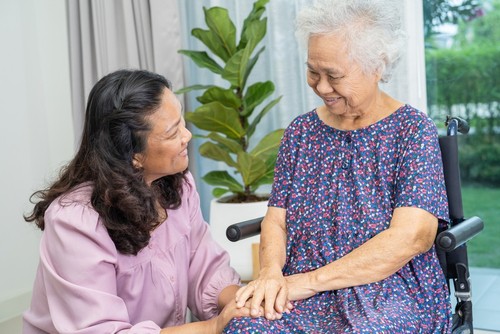
Part-time caregivers play a supportive role in personal care by offering assistance when needed while respecting seniors’ dignity and autonomy.
Effective communication and collaboration between caregivers and seniors create a positive and respectful care environment.
Caregivers should prioritize preserving seniors’ dignity and independence throughout the personal care process.
Monitoring Hygiene and Personal Care
Periodic assessments help caregivers track seniors’ hygiene needs and make necessary adjustments to care plans.
As seniors’ abilities and requirements evolve, caregivers should adapt care plans to meet their changing needs.
Part-time caregivers play a continuous role in maintaining seniors’ hygiene and ensuring their comfort and well-being.
Frequently Asked Questions (FAQs)
How often should seniors bathe or shower?
The frequency of bathing or showering depends on individual preferences and needs. Typically, a few times a week is sufficient.
What’s the best way to encourage seniors to practice good hygiene?
Encourage self-care while providing gentle reminders and assistance when needed. Maintain open communication about their preferences and needs.
How can caregivers help seniors with incontinence?
Caregivers can assist with incontinence by ensuring regular changes, using appropriate products, and maintaining good hygiene practices.
What are the signs of skin problems in the elderly?
Signs of skin problems include dryness, itching, redness, rashes, and skin breakdown. Prompt attention is essential to prevent complications.
Are there specific grooming products for seniors?
There are grooming products designed for seniors, including those tailored for sensitive skin, thinning hair, and dental care.
Should seniors change their hygiene routine as they age?
Hygiene routines may need adjustments as seniors age, considering their changing abilities and needs.
Can seniors maintain personal style in their clothing choices?
Seniors should be encouraged to express their personal style through clothing choices while considering comfort and practicality.
When should I seek professional help for a senior’s hygiene issues?
If hygiene issues persist or worsen despite interventions, consult a healthcare professional for guidance and assessment.
Hygiene and Personal Care: Maintaining Senior Well-Being – Conclusion
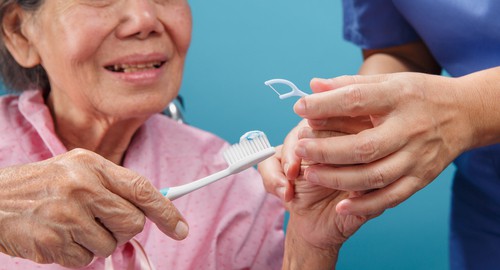
Hygiene and personal care are essential facets of senior well-being, impacting health, comfort, and self-esteem. They are pillars of dignity in the golden years.
To seniors, maintaining personal hygiene fosters self-worth and enhances quality of life. To part-time caregivers, your support in this aspect is invaluable.
In conclusion, the journey of senior well-being is enriched by proper hygiene and personal care. This care ensures that seniors enjoy their golden years with comfort, dignity, and good health, surrounded by the love and support of their caregivers.
Are you seeking professional and reliable elderly care services in Singapore? Contact us today!


